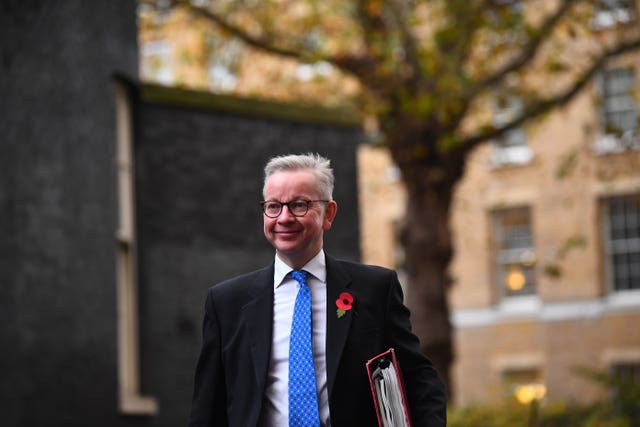Non-elite football in England will be halted during the second national lockdown period, the Football Association has announced.
The FA said matches and training in steps three to six of the men’s national league system (NLS) and tiers three to seven of the women’s football pyramid would be suspended during the upcoming lockdown period, which is being imposed by the Government amid a second wave of coronavirus infections nationwide.
The suspension also covers matches and training in regional NLS feeder leagues, the Women’s Super League academy league, FA girls regional talent clubs and indoor and outdoor youth and adult grassroots football.
As a result of the government's new national COVID-19 restrictions, we've issued an update regarding their impact on 'non-elite' football:
— The FA (@FA) November 3, 2020
The suspension comes into effect from Thursday, with the new restrictions set to last until at least December 2.
“Restarting football at these levels has taken substantial determination and commitment from stakeholders across the game and The FA would like to thank everyone for their vital contributions,” a statement from the governing body read.
“However, health and well-being remain the priority, so it is extremely important that clubs, players, coaches, match officials, league officials, volunteers, parents, carers and facility providers adhere to the UK Government’s new national Covid-19 restrictions during this period.”
Elite sport will continue, including the FA Cup first round this weekend which features 10 non-elite clubs.
A number of sports have criticised the decision to order the closure of outdoor sports facilities, saying the health benefits of staying open outweigh the public health risk.
#SaveOurSport ➡️ https://t.co/Flnws8klFgWe are asking you to help us lobby the government to make an exception for outdoor target ranges and field courses ahead of the vote on Wednesday.@uk_sport @Sport_England pic.twitter.com/3IPSzRz6XE
— Archery GB (@archerygb) November 2, 2020
Archery GB chief executive Neil Armitage said: “We agree with comments from fellow sports such as golf and tennis and believe that certain sports, particularly outdoor archery, can be safe with the current appropriate common-sense measures in place.
“The nature of our sport is that it may be enjoyed outdoors with adequate social distancing and Covid-secure protocols. Shooting arrows outdoors represents no more risk than taking a country walk, one could argue that it represents a lower risk as protocols are in place at all outdoor ranges.”
A survey conducted by the sport’s governing body found 44 per cent of its members felt being unable to participate would have a negative impact on their mental well-being, with 96 per cent saying they felt safe at their clubs when they were able to reopen after the first national lockdown.
Prime Minister Boris Johnson appeared to rule out making any exceptions on the ban on indoor and outdoor sports activity during the new lockdown period when he spoke on Monday, arguing: “Once you unpick at one thing alas the effectiveness of the whole package is compromised.”

Cabinet minister Michael Gove had to apologise on Tuesday morning after wrongly indicating it would be fine to play tennis or golf if it was with just one other person.
Meanwhile, ukactive chair Baroness Grey-Thompson questioned the decision to close gyms, stating that even the Scientific Advice for Emergencies (SAGE) group had spoken about the “detrimental” impact of shutting them again.
“Through July ukactive worked with the Chief Medical Officer, with SAGE, with Public Health England, to get guidance which covers ventilation, track and trace, hygiene, social distancing and got the highest guidance of any sector,” she told talkSPORT.
“That enabled us to open gyms and leisure provision. In September SAGE really, clearly highlighted the fact that if gyms closed again it was going to have a detrimental effect, not just on people’s physical health but on their mental health and well-being as well.”
British Cycling, England Athletics and British Triathlon have written to Culture Secretary Oliver Dowden to ask that small group rides and runs, and coaching sessions for young people and those with disabilities, are exempted from the new national measures.
In the letter, British Cycling chief executive Julie Harrington, British Triathlon chief executive Andy Salmon and England Athletics chief executive Chris Jones say: “While riding and running alone, with members of their household or with one other friend will suit many people, we know that so many others – those who rely on the support and encouragement of a friendly group, or may lack the confidence to go out alone – will simply stop altogether.
“We know that sport must play its part in this national effort, and we fully accept that as governing bodies we must play our part while the rest of the country is being asked to make such enormous sacrifices in their own lives. However, we also believe that we have a duty to enable people to lead healthy, active lives during this period of extreme mental toil – particularly when, as we have demonstrated over the course of this year, it can be done safely.”
/https%3A%2F%2Fsportsmole-media-prod.s3.gra.io.cloud.ovh.net%2F20%2F11%2Fdarlington.jpg)
/https%3A%2F%2Fsportsmole-media-prod.s3.gra.io.cloud.ovh.net%2Fuploads%2F2025%2F11%2Festevao-6926501e3975b566659219.jpg)
/https%3A%2F%2Fsportsmole-media-prod.s3.gra.io.cloud.ovh.net%2Fuploads%2F2025%2F11%2Foleksandr-romanchuk-69264839a6a12640016747.jpg)
/https%3A%2F%2Fsportsmole-media-prod.s3.gra.io.cloud.ovh.net%2Fuploads%2F2025%2F11%2Falonso-4-69264774b3d57305917036.jpg)
/https%3A%2F%2Fsportsmole-media-prod.s3.gra.io.cloud.ovh.net%2Fuploads%2F2025%2F11%2Fdelap-6-69263f59e370d977534812.jpg)